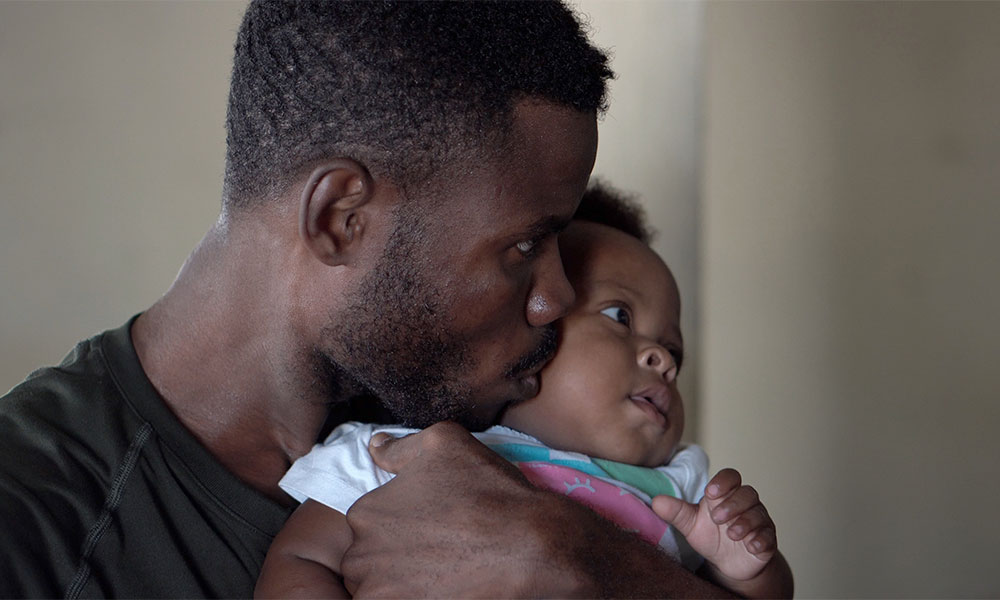Becoming a parent is bound to create some feelings of worry and jitteriness. Some people might refer to it as anxiety, but I like the word “jittery” because the definition of jittery includes being unable to relax. It is my experience that having a new baby can leave many feeling nervous and not able to fully relax.
The feelings of nervousness, anxiety, and jitters are all 100% normal. Not only that, but even if you have a child already, each additional baby can bring the feelings back again. You might feel less jitteriness or anxiety when you have your second or even third baby, but because every baby is different and changing the composition of a family creates new behaviors for everyone, there will be at least a little bit of jitteriness.
When speaking with new parents, I notice that once we discuss the fact that jitteriness is normal, those feelings begin to die down a bit. They might not diminish by a huge margin, but they diminish! Thinking you are the only person to feel the way you do can make the feeling much bigger. Therefore, talking about and normalizing such big feelings is a good first step.
If you are about to welcome a new baby and can identify with any or all of the emotions I just mentioned, you might find the tips below to be helpful. They may help you connect with others, as well as help you find resources to build your confidence and skills as a new parent.
10 Tips to Help New Parents Feel Confident
- Join a new parents group either in person or online and share your feelings with other new parents.
- Go to the park and chat with other parents.
- Write down all of the reasons you feel jittery. Once you make your list, write responses to the items on the list the way you would respond if talking to a friend that was feeling jittery about being a new parent. If you don’t have time to write the reasons you feel jittery, go ahead and say them out loud. Then, respond to them out loud. Even talking to your baby in a way that builds your confidence is helpful. For example, you might say, “I’m not exactly sure what I am doing here, but I will figure it out!”
- If possible, hire a professional babysitter, nanny, or doula, even for a few hours a week, to teach you how to care for your baby. If it’s not possible to hire someone, consider asking an experienced parent to hang out with you and help you gain some knowledge from them.
- Take a new parents class.
- Read one book that is dedicated to helping new parents care for their new baby. Be sure to research and find the one book that resonates with you — reading many parenting books can increase the anxiety level greatly. Try one thing each day or week from the book. Of course, reading a blog or finding a website you love might be a terrific alternative to a book.
- Take a Red Cross Child and Baby CPR class. I recommend this for all parents, whether they have new parent jitters or not, but especially if you are having the jitters, this class is likely going to help.
- Get sleep! If you are struggling with getting your baby to sleep at night, get help either right away or at least after the first month. You need your sleep! Without it, the body shifts to fight or flight mode and anxiety levels rise. This usually doesn’t happen right away, though — mom’s hormones adjust for the lack of sleep, just not for too long.
- Make note of every success you have each day when taking care of your new baby. For example, you might list that you changed the diaper perfectly, or that a feeding session went smoothly, or that you had a quiet moment of simply gazing at your baby as your baby gazed at you. Every single thing you do that creates a feeling of success is worth acknowledging.
- Breathe. Yes, breathing is automatic, but that doesn’t mean everyone does it enough. Sometimes under stress, the breath might be held. Find a breathing app and use it. The Breathwrk app might be helpful. Another option is reading or listening to a book about breathing. Breath: The New Science of a Lost Art by James Nestor is a wonderful book that might meet your needs.
It is through normalizing, recognizing success, and finding a system of support that you will gain comfort and confidence as a new parent.
Please note: New parent jitters are different from depression. If you are feeling depressed or the jitters you are experiencing are beyond your control, you might find it helpful to speak with a therapist that specializes in helping new parents with their jitters and anxiety. A therapist who has been a new parent before might be especially helpful, because they are likely able to differentiate between normal new-parent anxiety and anxiety that might require a little more help.
As always, feel free to connect with me to ask clarifying questions or to work with me on your new parenting journey and potential quest for sleep. I’m here to help.

